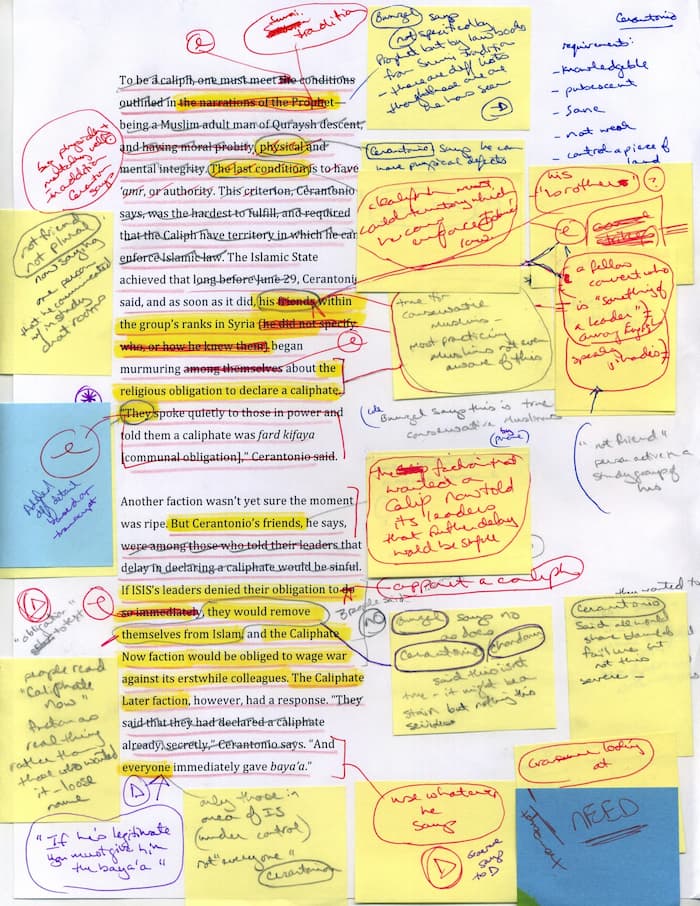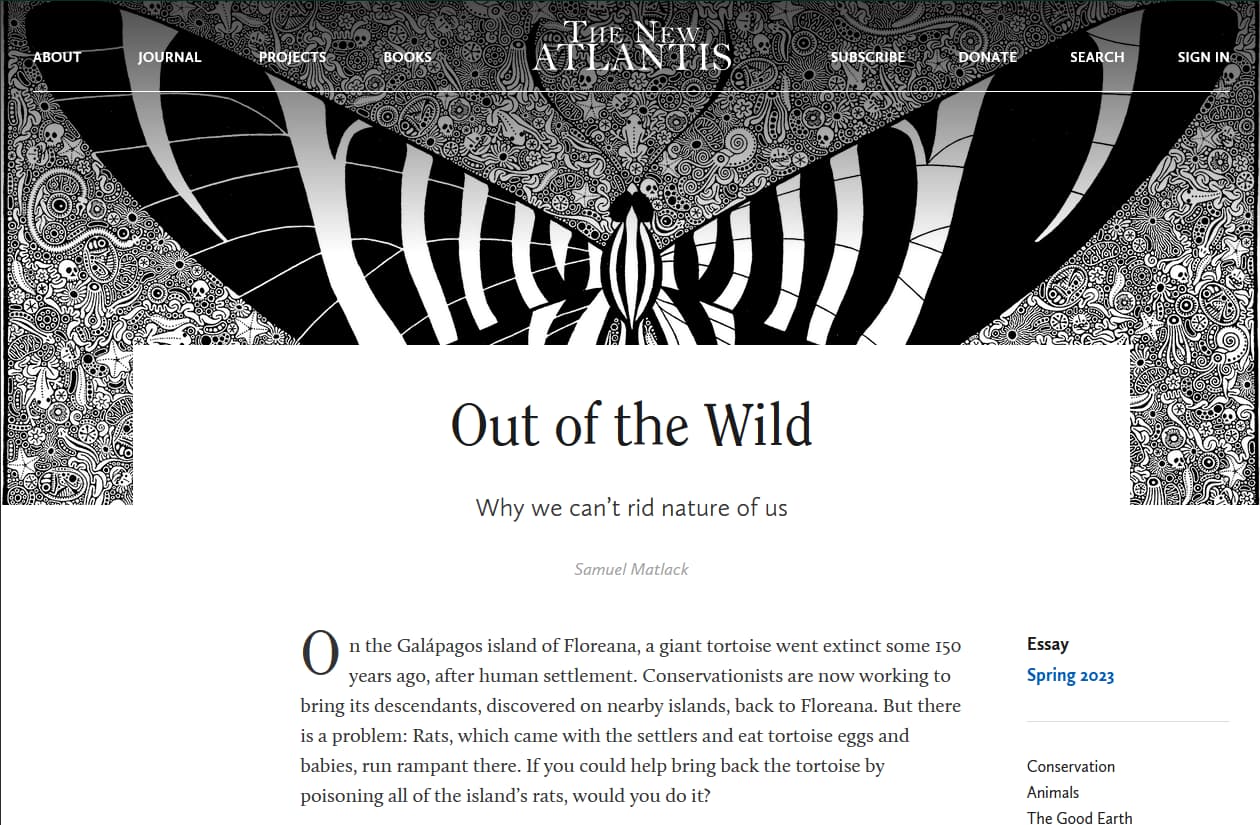Slow Media
Media that focuses on long termism, accuracy and relevance, at the expense of response time. May publish as often as once a week, or as slowly as once a year. Some may consider slow media to be the bridge between articles and books.
Why read slow media? Isn't being up-to-date the point?
"Traditional" media is rife with self-feeding problems. Since many people will not pay for information, it is funded by advertising and sponsorships. These advertisers do not have the viewer's interests at heart. They are incentivised to show as many ads as possible, meaning they prioritise engagement, and one of the most effective ways to engage is outrage[1]. This feedback loop means news is saturated with outrageous news that degrades viewers mental health, advertising for products of often questionable quality, and news of such questionable accuracy as to be considered lies[2]. Some call this postjournalism.
To counter this, slow journalism offers the following:
- No Advertising networks. Slow media is funded in other ways, most commonly from its readers. That said, most slow journals still feature ad-like promotions to call for donations or to buy their merchandise.
- Infrequent updates. Ideal for those experiencing Information overload.
- Detail. Slow journalists are able to create longer content, with more rich media.
- Accuracy. Fact-checking is a labourious and time-consuming process which appears to be skipped in fast-news. Slow-news can spend more time here.

Examples of slow media
My personal favourites:
These magazines I either subscribe to in my RSS reader or visit every few months.
- Works in Progress publishes every few months without a strict schedule. Free to read for all, but differs from the others in that it is funded by Stripe rather than by readers. Makes almost no attempt to push you to subscribe or buy anything, making reading a much more pleasant experience.
- The Pudding publishes online once or twice a month with highly interactive stories. The "How Are You Doing?" experience is an excellent dive into emotional intelligence and the value of therapy. News is free to all, but paid supporters on their Patreon are given merchandise and access to a private Slack channel.
- Knowable Magazine is so good it is hard to believe it's free to read. Start with one of their highly researched comics, Why do thieves keep stealing catalytic converters?. Then try one of their collections on The Working Life, such as their article on work-life balance. 100% funded by reader donations.
- Greater Good Magazine has many fantastic articles on how to have better relationships and be a better person. One of my favourites is How curiosity and consent can make old lovers new again. Offers additional perks for donations of $50/year. Has no external ads, but displays many calls to donate, buy their merchandise, take surveys, and subscribe that feel very ad-like.
- Noema publishes around twice a year, and offers issues in both print and digital for $20 each. They feature wonderful static and animated artwork for every article, and you might want to see their Top Art of 2022. They cover a wide variety of societal issues, though there is a clear American influence. I'm working through their articles on Banks for the people and another article about funding carbon sequestering with a Carbon Coin: Paying Ourselves to Decarbonize.
- Psyche.co is an offshoot of Aeon mentioned below, focusing on the human mind. Often it's articles are highly actionable and extremely valuable reading, and I appreciate that they frequently supply a Key Points section that summarises each article. My favourite article is How to stop procrastinating. Totally free to read and funded 100% by reader donations.
- LOW←TECH MAGAZINE is unique for being powered entirely by solar power. You can see the current battery level in the website's background. This blog has some excellent posts about energy and sustainable future. My favourite article is this one, Heating people not places

The New Atlantis is an academic journal with gorgeous photography, typography and publishes 4 times a year. I'm currently enjoying How to make friends
Others of note
These magazines I have chosen not to subscribe to, but I visit on occasion or recommend to people who may be more interested in their subject matter.
- Aeon's writing is so good it is comparable to good books - the kind you go back to and reread when you need them. Their articles can run quite long and into difficult material, so you might want to start with something easier, like The Biography of the Pixel. I'm also pondering through Learning styles don't exist, and If not vegan then what?.
- Quanta Magazine has gorgeous art, diagrams, typography, and huge amounts of research and fact checking. Being mostly science focused, I find myself unable to understand and appreciate the material here, but perhaps you will.
- Undark, in their own words: "Undark is a non-profit, editorially independent digital magazine exploring the intersection of science and society. It is published with generous funding from the John S. and James L. Knight Foundation, through its Knight Science Journalism Fellowship Program at MIT."
- Delayed Gratification publishes once a quarter in both print and digital. Digital costs £30/year, print costs £79/year for me in the US. They cover world news, often seemingly making a point to avoid US news. Additionally, they offer a promising looking online course on how to make infographics.
- Atmos publishes twice a year and is available for free. Covers climate and environmental justice concerns such as the Ohio train derailment of 2023.
- The Guardian has a Weekly print edition for $27.50USD/month
- The Point Mag publishes an issue every four months, and offers 3 articles for free before requiring you to purchase a subscription for $3/month. I like their website's design style and love for typography, but after reading 3 articles and not really enjoying any, I'm unlikely to return.
- Asterisk Mag is contributed to by Dynomight, one of My favourite blogs. They publish once a quarter, and in their words "is fiscally sponsored by the Effective Ventures Foundation, a registered charity in England and Wales".
- n+1 has been around since 2004, and publishes 3 times a year. They are funded by the N+1 Foundation, and reader subscriptions which start at $4.50USD/month. I'm reading Why is everything so ugly?
- Public Books Magazine has been around since 2012 and is funded by Columbia University and donations from its readers. Has wonderful Typography. They have a notable article on why US news is the way it is, Misinformation Society.
Similar, but not slow news
A consequence of my above strict definition of slow media is that many other sources don't fit. But you may still be interested in them.
Non-profit news
Is funded by donations, but may post more regularly than slow news and also supplement funding with advertising networks.
- Wikipedia News portal updates extremely quickly and never has ads. It's my preferred sources for learning what's new around the world.
- News Minimalist uses GPT-4 to rank news around the world every day and show only the most significant. Made by one person, with no ads as of 2023-05-01
- Propublica is a mostly reader funded publication which investigates US abuse of power. Has some ads, publishes a little too often, and feels too aggravating for me to read regularly. But has some excellent articles, such as how to evaluate a non-profit.
- Axios, in particular for me, Axios Seattle. I like this a lot for being so relevant to me, as well as being reader funded. Additionally, accepts reader corrections and publishes them. Has a high quality daily email newsletter, with no external ads - just ad-like self promotion of itself, such as calls to donate, download its app, or look at its job board. Its writing is generally not worth re-reading, but is good for skimming to know what's happening in my area.
Government funded news
State media is funded by taxpayers. Can have some downsides:
- may lock access to geographic IP ranges.
- may be propaganda machines, such as Russian news or Chinese News
That said, some excellent government funded news outlets exist:
- Symmetry Magazine focuses on particle physics and is funded by the US Department of Energy.
Other's opinions of slow media
The Slow Media Manifesto is a deeper look into the philosophy of slow media and how to make it.
Our stories have been republished by publications including Smithsonian Magazine, Scientific American, The Daily Beast, Popular Science, Quartz, Slate, TED Ideas, Big Think, Time Magazine, and BBC Future
Wikipedia has a page on slow journalism.
Fortune 2023-02-15 - Trust in media is so low that half of Americans now believe that news organizations deliberately mislead them ↩︎
The Atlantic 2018 January 12 - How to Fact Check The Atlantic ↩︎